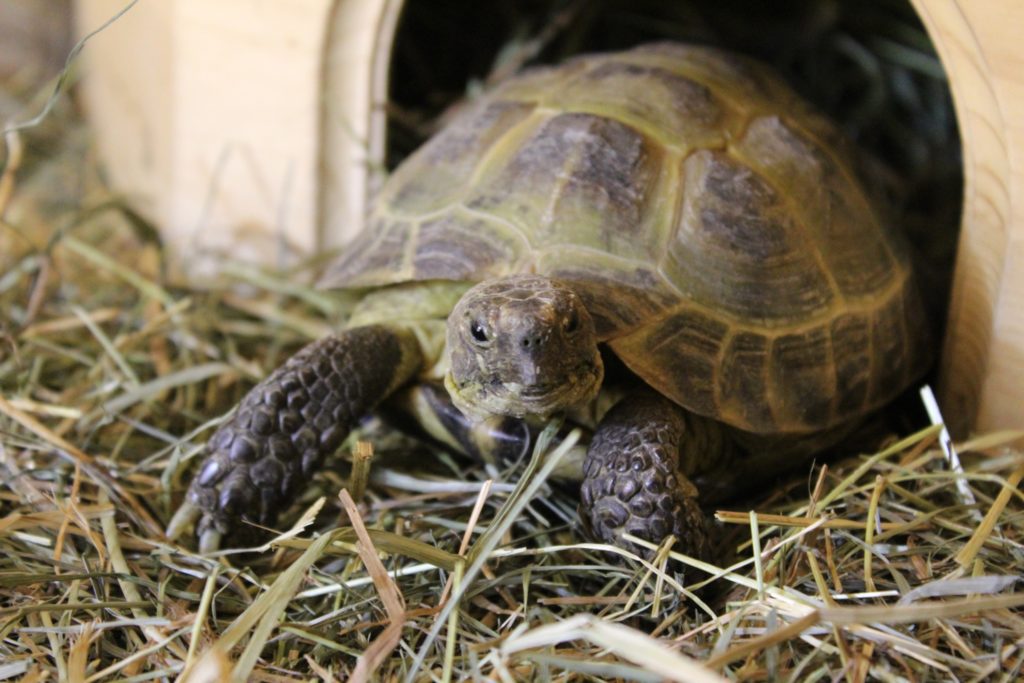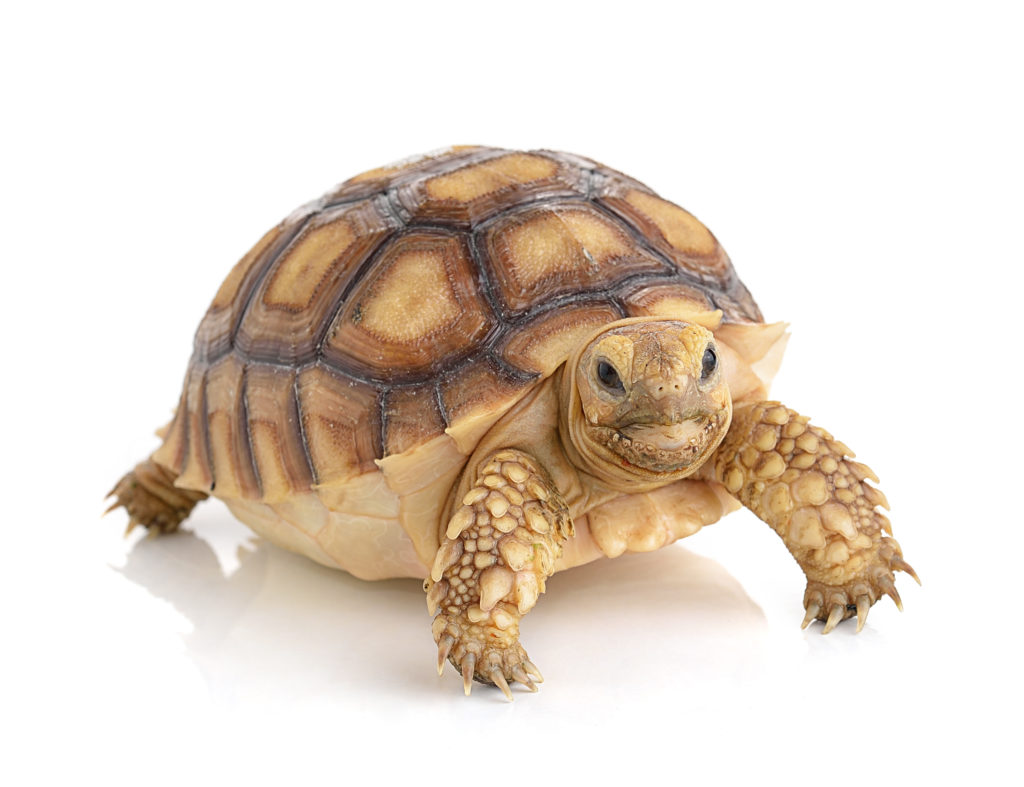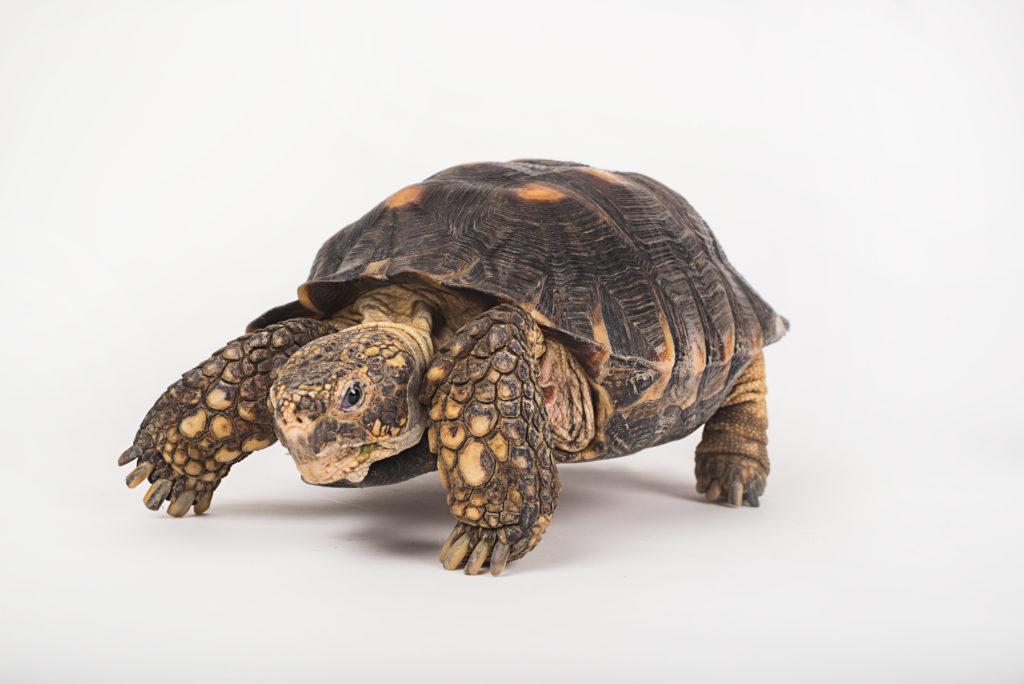Turtles are an ancient branch of the reptile family. They’ve lived on earth for around 220 million years. You might be wondering if this cold-blooded cousin of the dinosaurs makes for a good pet – the answer is that for someone who loves them, a turtle can be an extremely rewarding addition to your home! Turtles are less work than cats or dogs, but more exciting than fish. When well-cared for, they generally live long lives, anywhere from 20 to 80 years. While they can’t be handled too much, they have individual personalities that make them interesting and engaging pets.
Types of Pet Turtles
There are several kinds of turtles you can keep as pets. The distinction between them is how much time they spend in the water.
Tortoises

Land-dwelling turtles that live mostly off shrubs and grasses. They don’t have webbed feet, as they don’t necessarily spend any time in the water. Most of them are docile unless two males are kept together. A healthy tortoise’s lifespan can be around 70 years, and certain species, like the common Greek tortoise, can grow to be approximately 10 to 12 inches long.
Turtles

Or aquatic turtles, spend their lives in water. Most pet turtles will be freshwater turtles, like those found in lakes and rivers, and not sea turtles. Freshwater turtles have webbed feet but still climb onto logs and rocks to bask. Certain small turtles don’t grow past 5 to 6 inches in size, even as adults. Turtles that stay small can be easier to keep, since they need less space, less food, and are generally easier to handle. Some common small turtles are mud turtles, musk turtles, and spotted turtles. When looking for a turtle that will stay small, be sure to select a male turtle, as females are generally the larger of the species.
Terrapins

Partly water turtles, and partly land-dwellers. “Terrapin” is an Algonquin Indian word meaning “little turtle.” Terrapins are commonly found in swamplands. The diamondback terrapin is a common small turtle (the males remain around 5 inches in size, while the females can grow to around 8 inches) that lives in a brackish water habitat.
Never try to keep a wild turtle as a pet. They will become sick and distressed, unable to live in captivity. It’s best to research a reputable reptile dealer or head to a pet store to get a healthy turtle that has been bred to thrive in a tank environment.
The Turtle Tank
Keeping turtles as pets can be done by beginners, but setting up their home habitat requires some patience and know-how. While tortoises should ideally be kept outdoors, an aquatic turtle or terrapin will need a pond or tank. Aquatic turtles are excellent swimmers and should be kept in a tank with at least a 55 gallons volume. The bottom of the tank can be lined with aquarium gravel, or, for some terrapins, crushed coral. Large smooth stones are a good option for some tanks. They can be more easily cleaned than gravel, and turtles will not be tempted to eat the aquarium lining.
Pet turtles will need a place to bask out of the water. A turtle dock can provide a dry place for them to sun themselves. They will need proper lighting to keep warm while basking and a water heater to keep their water temperature within a comfortable range while they swim.
Different kinds of pet turtles have different water temperature requirements, and the breeder can give you a care sheet to make sure you set your heaters at the right level. As a general guideline, many popular varieties like the Red-Eared Slider, Musk Turtle, or Painted Turtle need water heated to around 78-82 degrees Fahrenheit when young, and to about 74-78 degrees Fahrenheit in general. The daytime air temperature in the tank should be about 75-80 degrees Fahrenheit, and the basking area heated to 90-95 degrees Fahrenheit. At night, the temperature can drop down significantly, to as low as 60 degrees Fahrenheit.
How to Take Care of a Turtle
Getting sunlight will help your turtle’s shell stay strong, as turtles naturally bask for many hours of the day. Most turtle varieties do not need to be fed every day, although baby turtles and some water turtles do. Turtles often eat insects, small fish, and leafy greens. Tortoises, however, will eat vegetables and fruit. You can purchase turtle food, which usually comes in pellet form and freeze-dried mealworms and turtle treats, from most pet stores.
Above all, the most important thing you can do to keep your turtle healthy is to keep their tank clean. Aquatic turtles live in, drink, and go to the bathroom in their tank water. Their enclosure should be entirely cleaned and disinfected at least once a week with a 3% bleach solution.
Handling Your Pet Turtle
Turtles don’t like to be handled too often and may bite when they’re frightened. When you need to pick them up, lift the turtle from its midsection, and never from any of the legs.
Turtles, even healthy ones, often carry salmonella. Like many animals, they can transmit bacterial and viral infections to people. Always wash your hands thoroughly after handling your turtle, or cleaning any part of their tank. Children should be supervised around turtles for this reason, and turtles can’t be snuggled, kissed, or brought up near your face.
Takeaway
A turtle can be an exciting and unique pet to have or you can check another low maintenance pet like pet hamster and molly fish. While tortoises live on land, aquatic turtles or terrapins can be kept in tanks with basking areas. Keeping the water clean is the most critical step in maintaining a healthy and happy aquatic pet turtle. While turtles shouldn’t be handled too often, their quirky personalities, beautiful shells, and interesting habitats make them enjoyable additions to your home or apartment. And their long lifespan means that keeping a pet turtle can give you a friend for life!
